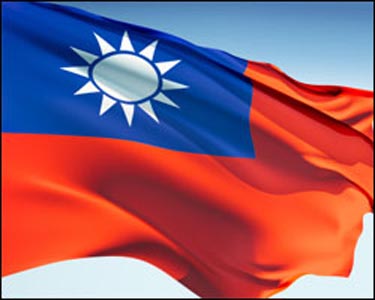With the world’s eyes focused on Singapore—where U.S. President Donald Trump and North Korean leader Kim Jong Un held a landmark summit this week—the U.S. quietly unveiled a new $255 million representative office for the American Institute in Taipei. The AIT has since the 1979 severing of diplomatic relations with Taiwan served as a “de facto” embassy in the region. At The New York Times, Chris Horton reports on the “low-key” ceremony held at the new AIT office in Taipei:
While Taiwan’s president, Tsai Ing-wen, and her predecessor both attended the dedication of the new, $250 million compound of the American Institute in Taiwan, the highest-ranking attendee from Washington was Marie Royce, the assistant secretary of state for educational and cultural affairs.
James Moriarty, the chairman of the Virginia-based headquarters of the institute, and Representative Gregg Harper, a Republican from Mississippi, were also part of the American delegation.
[…] There had been speculation that President Trump might make a bolder show of support for Taiwan, which has emerged as one of the most vibrant democracies in Asia. However, the lack of cabinet-level visitors from Washington displayed the Trump administration’s unwillingness to upset China, with whom it is already locked in a standoff over trade.
[…] As in the case of the summit meeting on the other side of the South China Sea, China was not present, but was certainly watching. The government in Beijing views Taiwan as its sovereign territory, which it has vowed to reclaim by force if necessary, despite never having actually ruled the island. [Source]
At CNN, Steven Jiang contrasts the negative official commentary from Beijing with positive remarks from U.S. officials at the ceremony in Taipei:
“The United States sending officials to Taiwan under any excuses is in serious violation of the ‘one China’ principle,” Geng Shuang, a Chinese foreign ministry spokesman, said Tuesday. “It interferes with China’s internal affairs and negatively impacts China-US relations.”
“We urge the US to abide by its pledge to China and correct its mistake to avoid harming China-US relations and peace in the Taiwan Strait.”
[…] In an opening address, Assistant US Secretary of State for Educational and Cultural Affairs Marie Royce described the sprawling five-story complex, which cost $255 million to build, as much more than mere bricks and mortar.
“AIT’s new home is both a tangible symbol that reflects the strength of our ties, and a state-of-the-art facility that will make possible even greater cooperation for years to come,” she said. [Source]
Meanwhile, Chinese officials dismissed any ideas that China would reach out to Taiwan for an official summit following the Trump-Kim summit in Singapore. In 2015, Xi Jinping and former Taiwanese President Ma Ying-jeou met in Singapore, the first meeting of highest Chinese and Taiwanese officials since the end of the 1949 civil war.
Deutsche Welle reports further on the ceremony in Taipei, relaying remarks from AIT Director Kin Moy and Taiwanese President Tsai Ing-wen:
Moy said the new building was “a symbol of the close cooperation and enduring friendship between the United States and Taiwan.”
The US has no formal diplomatic relations with Taiwan but continues to have close economic, political and security ties with the democratic self-ruled island. It is Taiwan’s strongest ally and only foreign arms supplier.
Taiwanese President Tsai Ing-wen said the complex was a confirmation of the countries’ commitment to a “vital relationship.”
“The friendship between Taiwan and the US has never been more promising. The great story of Taiwan-US relations remains to be filled with the efforts of those that will one day occupy this building,” Tsai said. [Source]
President Tsai also took to Twitter to mark the occasion:
Today we dedicate the new AIT compound,we also rededicate ourselves to our shared commitment that as free & open democracies, #Taiwan & #US have an obligation to work w/ one another to defend our shared values. I look forward 2 an even brighter chapter in our enduring friendship! pic.twitter.com/le1xXvS7tc
— 蔡英文 Tsai Ing-wen (@iingwen) June 12, 2018
Since the landslide election of pro-independence candidate Tsai Ing-wen as president of Taiwan in January 2016, Beijing has been steadily ramping up pressure on the island. Months after Tsai’s win, China suspended communication with Taipei. Beijing has been increasingly leveraging its economic and diplomatic clout to put pressure on Taiwan, and has also increased its assertion of pressure on corporate entities to reinforce its claim to the de facto independent island nation.
Can sound naive but I wish people could get as enthusiastic towards law-abiding, democratic, human rights champion & beacon of freedom Taiwan as they suddenly are towards nuclear power to be & human rights violator North Korea.
— Pierre-Yves Baubry (@pybaubry) June 12, 2018







